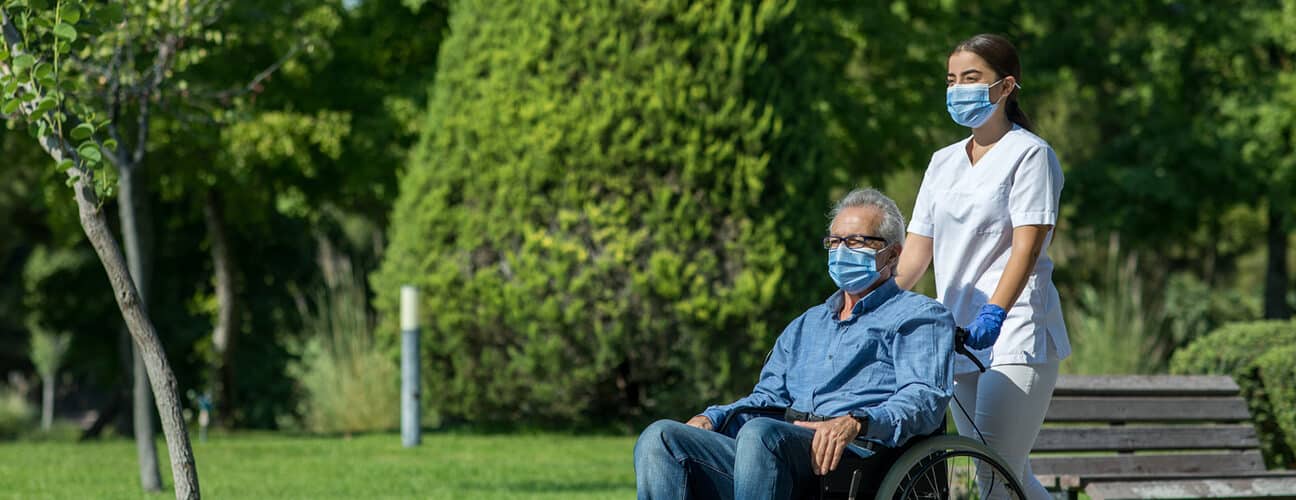Supporting persons with disabilities and their families in response to Covid-19
Measures implemented by Bond Disability and Development Group
Type
ReportIn March 2020, the World Health Organization’s (WHO) Director-General declared Covid-19 a global pandemic, the first pandemic sparked by a coronavirus.
At that time, more than 118,000 Covid-19 cases and more than 4,000 deaths had been reported in 114 countries. Over one year later, the impact of Covid-19 has grown significantly. By April 2021, the total number of Covid-19 cases worldwide surpassed 130 million and close to three million deaths had been reported. While the pandemic started as a health crisis, it has also become a social and economic crisis that is expected to negatively affect many communities for years, derailing and reversing progress made towards the Sustainable Development Goals (SDGs). While Covid-19 has impacted all corners of society, it is the most marginalised who are especially impacted by Covid-19. Persons with disabilities are among those most at risk from the impacts of Covid-19:
- Persons with disabilities are at greater risk of contracting Covid-19. Public health information on prevention measures is often inaccessible water, sanitation and hygiene facilities are often inaccessible to some persons with disabilities social distancing and self-isolation measures are frequently unfeasible for persons with disabilities who depend upon carers and, people with disabilities in residential institutions and some humanitarian contexts often live in close proximity to large numbers of people reliant on carers and officials to prevent or respond to cases of Covid-19
- Persons with disabilities and those with underlying health conditions are also more likely to develop serious illness from Covid-19. According to the WHO, Covid-19 can exacerbate underlying health conditions which can result in more severe illness or death
- Older people are also at higher risk of developing serious illness or dying from COVID-19. World Health Survey data shows that across 43 Lower and Middle Income Countries (LMIC) one third of people aged 50 or older have a disability, which suggests potentially compounded risk. Attitudinal, environmental, and institutional barriers may also increase the risk of persons with disabilities developing serious illness or dying from Covid-19, including physically inaccessible health infrastructure, a lack of healthcare worker capacity to treat people with disabilities, or existing stigma and discrimination in the health sector. Some country governments also introduced guidelines and practices that could lead to discrimination by permitting persons with disabilities to be deprioritised for treatment when health systems reach full capacity. Mental health conditions and psychosocial impairments could be exacerbated due to fear and anxiety over contracting COVID-19, as well as economic and financial pressures, long periods of social isolation causing departures from established routines, family pressures and conflict.
- Persons with disabilities are also at greater risk of secondary impacts of Covid-19. They may have decreased access to necessary healthcare and medications due to pressure on the health systems and supply chains. Persons with disabilities’ livelihoods and/ or food security may also be disproportionately impacted by restrictions on movement, especially in LMICs where they are more likely to be in informal work or self-employed, with limited labour protections.
- Persons with disabilities may also have limited access to or inadequate social protection as pressures on schemes increase, and may face increased stigma, discrimination, neglect, violence, and abuse
People with disabilities are disproportionately represented amongst those living in poverty. We know that people experiencing social disadvantage and marginalisation are disproportionately impacted by illhealth18 and that the impacts of Covid-19 are likely to be worse for people in lower socio-economic groups. Pre-existing barriers to healthcare, livelihoods, social protection, and education are likely to worsen both during and after this crisis.
Civil society organisations (CSOs) have played, and continue to play, a critical part in response to the pandemic. Civil society has worked to fill gaps left by governments and businesses by providing essential services and safety nets for marginalised communities, they have also worked to defend their rights, enable political participation, and challenge disinformation. In doing so, both individual CSO’s and the broader civil society sector has changed. Organisations have adapted modes of delivery such as moving work online or shifted their focus (e.g. from long-term development projects to emergency relief).
Broader sectoral changes include the emergence of new voluntary associations and new partnerships, some of which focus on meeting immediate needs within communities while others seek to strengthen community resilience and/or create new social movements for political and economic change; in many cases local CSOs have stepped into a space left by larger international non-governmental organisations who evacuated staff at the start of the pandemic.
This paper is a first attempt to review the types of measures taken by members of the Bond Disability and Development Group to mitigate the impact of Covid-19 on persons with disabilities and their families, either directly or by influencing the actions of third parties. This paper is based upon the selfreported activities of members of the Bond Disability and Development Group. By sharing these activities, this paper intends to inspire and strengthen the inclusion of persons with disabilities in further responses to Covid-19, and in response to future pandemics. The report presents a summary of responses to Covid-19 that target and/or include persons with disabilities, it does not provide technical guidance.

